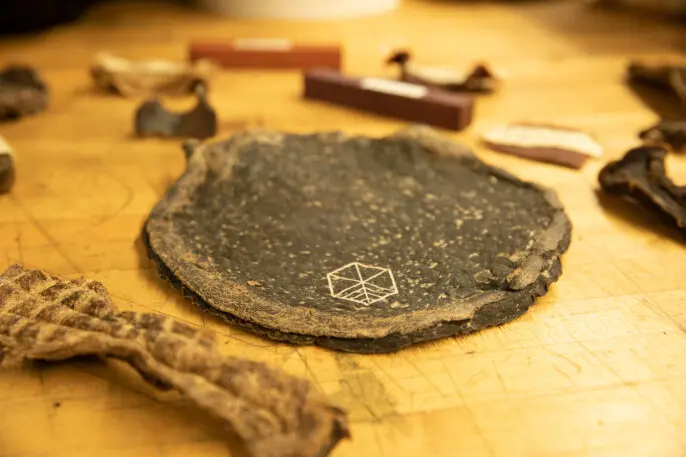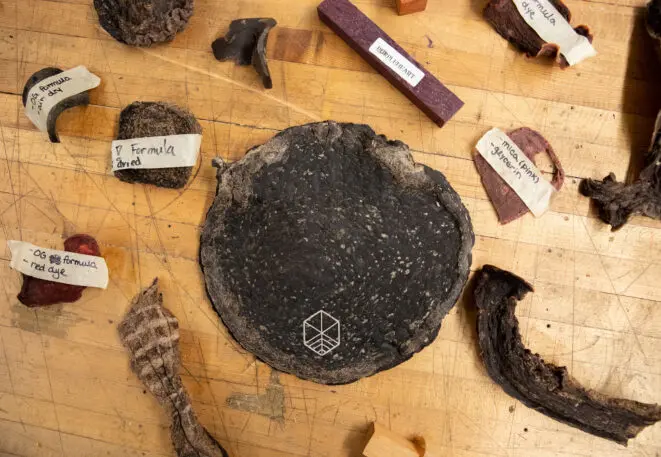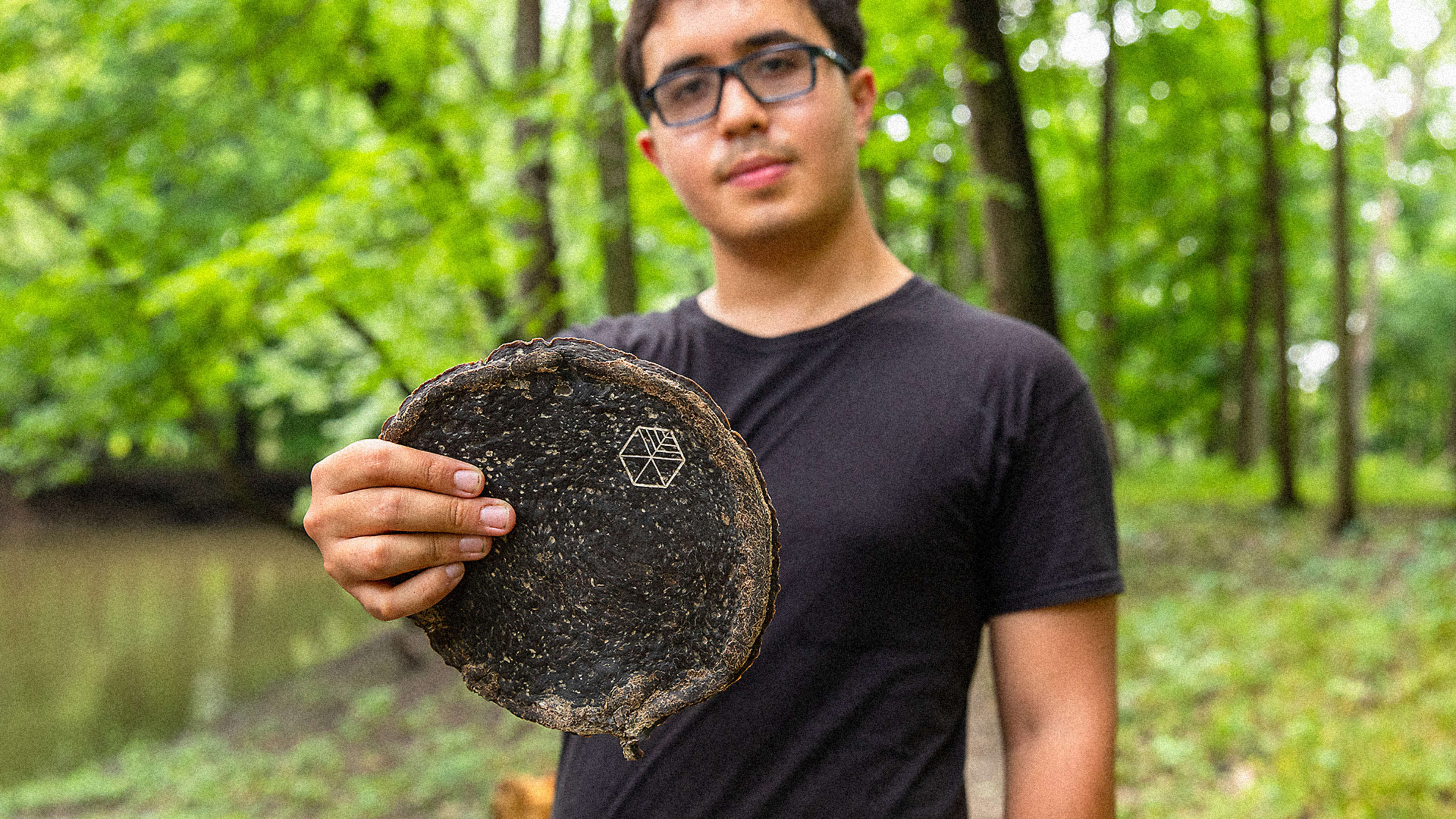The guitar picks and jewelry sold by the company Symmetry look like they’re made of exotic woods. You might spot mahogany or purpleheart, which are sourced from rainforests, but no trees were cut down to make these items. Instead they come from a material called Pyrus, a wood alternative made from waste from kombucha brewing, and the winner of this year’s national James Dyson Award.
Gabe Tavas, a sustainable design student at the University of Illinois at Urbana-Champaign, began working on Pyrus after he saw other designers use kombucha cellulose—a slimy sheet of bacteria cellulose that grows on top of kombucha as it brews, and which is usually thrown out or composted—to make items like jackets. Tavas always knew he wanted to design products without using petroleum and toxic materials while having a minimal impact on the planet.

He became fascinated by the material, looking for other ways it could be used. “I started doing more research into problems like deforestation, and then it hit me that wood is mostly composed of cellulose,” he says. “Trees use cellulose to create their basic structures, so what if we got that ingredient from bacteria instead?”
Tavas chose to focus on replicating exotic woods because many are endangered. To woodworkers, exotic woods are a highly sought after material. Lumber like Brazilian rosewood, which grows in the Amazon, and mahogany, which grows in tropical forests across South America and the Caribbean, are resilient hardwoods that come in beautiful, deep colors. But the demand for these woods has led to massive rainforest deforestation. Exotic woods can also be toxic to woodworkers; the dust and oils that are exposed when cutting and sanding this lumber can be harmful to people’s health.
Tavas first made his kombucha-waste wood alternative in his dorm, growing the cellulose himself. Then he started working with The Plant, a community of food businesses working on ways to become circular. There, a company called KombuchAid became “enthusiastic” about his project, he says, and began supplying the bacteria cellulose—250 pounds to this day, and still going.

To make Pyrus, Tavas and his team blend that cellulose and pour it into a mold, adding in agar, an algae-based gel, as a binder. They dehydrate the material and then put that hardened sheet of cellulose under a mechanical press to flatten it smooth. The result is a sheet of synthetic wood that can be sanded and cut just like wood from a tree, and which can biodegrade (Tavas says the material can start to decompose after being left out in the rain, but he hopes to do more testing on exactly how long it takes to biodegrade in the future).
Some other wood alternatives upcycle sawdust, but that still requires trees to be cut down. Pyrus, on the other hand, “is great from an efficiency perspective in reducing waste from lumber cutting,” Tavas says, “but particularly for these endangered woods. Trying to keep as many of those [trees] standing as possible . . . is ideal, particularly since climate change is only escalating.”
For now, Tavas is using Pyrus to make small items like guitar picks and jewelry. In the future, he hopes to 3D print the bacteria cellulose into bigger objects that would be difficult to make out of a sheet of the material.
Recognize your brand’s excellence by applying to this year’s Brands That Matter Awards before the early-rate deadline, May 3.
